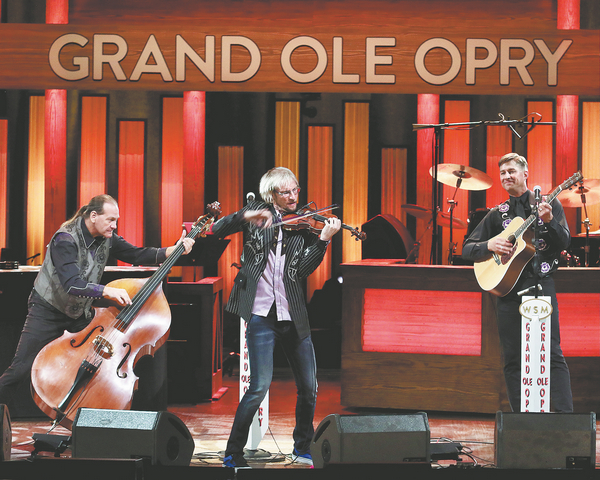

"I started seeing all these parallels and realizing that, even though we're over 7,000 miles away, we are so similar in so many ways, and I didn't want to leave. I loved everybody I met and just had so much fun," he says.
For Dillingham, there have always been learning experiences and "ah-ha" moments during his trips to Gansu, which lay bare the vast diversity and different levels of development of China.
"I'm still finding and tasting new foods and learning about a new tradition, or discovering a different kind of tea ceremony or a different way of life," he says. "It's just astounding that, after thousands of years of history, there's still an opportunity to share something new with one another."
He watched the dances, singing and musical performances of various ethnic groups and picked up influences for his own music.
"We're always expressing the same ideas — love gained, love lost and a love for our home; the intrigue of something new, friendships, sadness and joy. All these things that we're expressing, it's the same stories over and over," he says.
He adds that when people visit big cities, which have become increasingly homogenized, they start leaving traditions behind. While visiting Beijing and Shanghai means that a person has been to China, setting foot in Gansu is really visiting the country, at least, in terms of getting close to its traditions.
"When you're in the smaller, more rural parts of the country, I think you're getting the pure form of tradition," he says. "I'm having a more pure encounter with Chinese culture, traditions and customs."
In 2019, Dillingham and his team conducted their Silk Road and the Fiddle Sister State Tour through China, giving concerts along the ancient Silk Road in the cities of Qingyang, Lanzhou, Tianshui and Baiyin.
"Without the Silk Road, you would not have the traditional American fiddle culture that I have grown to love," Dillingham says, noting that the origins of the violin can be traced back to Central Asia.
It was along the Silk Road that this bowed, stringed instrument made its way to the Arabian Peninsula, on to the Mediterranean and into Europe, to Italy where, hundreds of years later, it eventually evolved into the violin, which was exported to every continent, including North America, according to Dillingham.
"There's a thread that connects us all, and there are nuances, but in the end, what we find is that all the people will connect and share so many things they have in common, and we can learn about various traditions and cultures," he says.
Dillingham adds that he hopes cultural exchanges between China and the US will help improve relations between the two countries.
"My hope is that it does help, and I think that, in a time like this, especially when politically, there are tensions. It's a moment where cultural exchange and music diplomacy can really shine," he says.
The opposite of taking the time and slowing down to get to know each other is making a generalized decision about an entire country's population based on a headline or the latest news or political dispute, which he says is a "dangerous game".
"I think it's something that is in our DNA, and that we're all capable of love. But sometimes we have to be intentional, and we have to focus," says Dillingham.
The music tours across China have sometimes led him to wax philosophical on the underlying role and nature of music.
"I think there is a way to make a living as a musician, but I don't think that's the reason for music," he says. "The real purpose of music is that it naturally brings us together as a community, and it unifies."